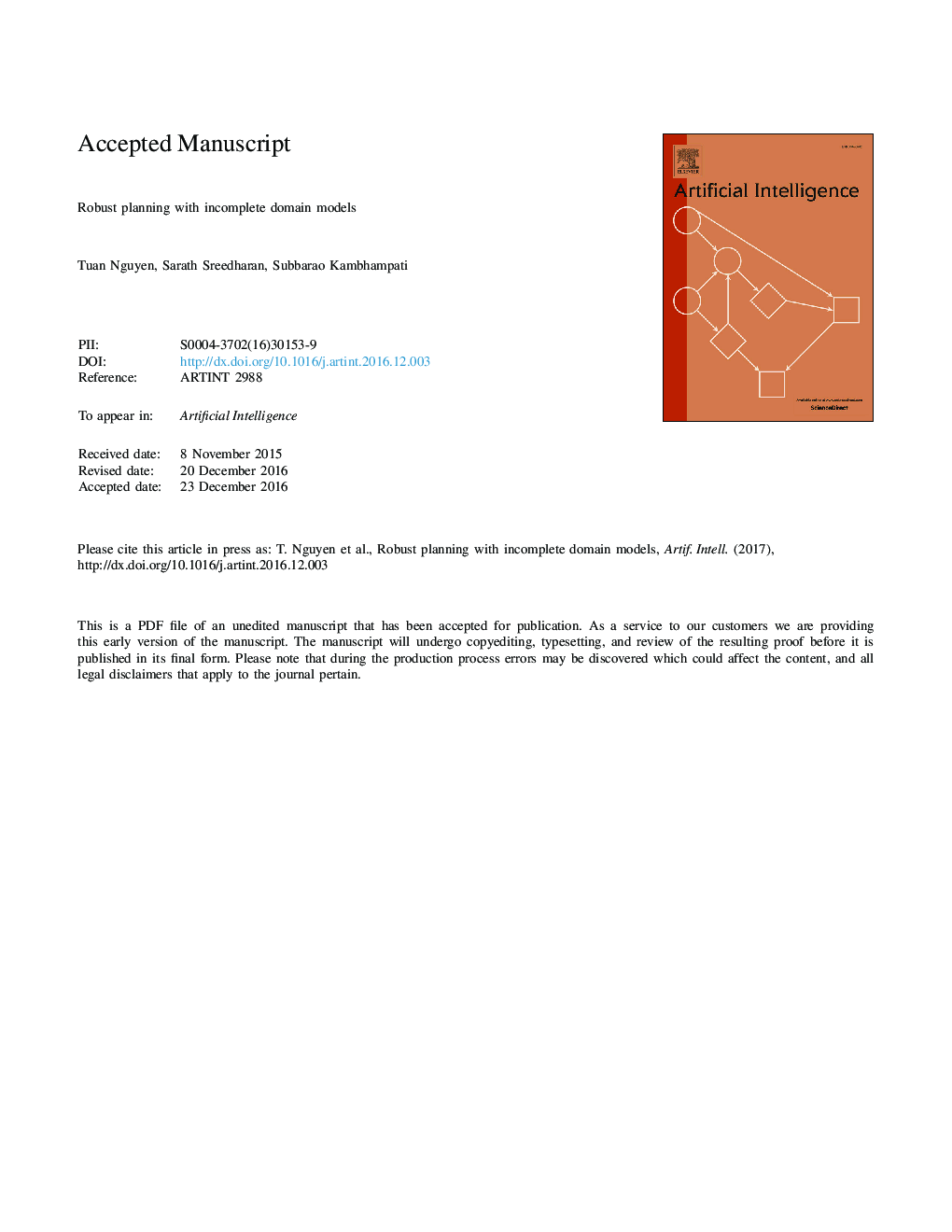| Article ID | Journal | Published Year | Pages | File Type |
|---|---|---|---|---|
| 4942084 | Artificial Intelligence | 2017 | 42 Pages |
Abstract
Most current planners assume complete domain models and focus on generating correct plans. Unfortunately, domain modeling is a laborious and error-prone task, thus real world agents have to plan with incomplete domain models. While domain experts cannot guarantee completeness, often they are able to circumscribe the incompleteness of the model by providing annotations as to which parts of the domain model may be incomplete. In this paper, we study planning problems with incomplete domain models where the annotations specify possible preconditions and effects of actions. We show that the problem of assessing the quality of a plan, or its plan robustness, is #P-complete, establishing its equivalence with the weighted model counting problems. We present two approaches to synthesizing robust plans. While the method based on the compilation to conformant probabilistic planning is much intuitive, its performance appears to be limited to only small problem instances. Our second approach based on stochastic heuristic search works well for much larger problems. It aims to use the robustness measure directly for estimating heuristic distance, which is then used to guide the search. Our planning system, PISA, outperforms a state-of-the-art planner handling incomplete domain models in most of the tested domains, both in terms of plan quality and planning time. Finally, we also present an extension of PISA called CPISA that is able to exploit the available of past successful plan traces to both improve the robustness of the synthesized plans and reduce the domain modeling burden.
Keywords
Related Topics
Physical Sciences and Engineering
Computer Science
Artificial Intelligence
Authors
Tuan Nguyen, Sarath Sreedharan, Subbarao Kambhampati,
